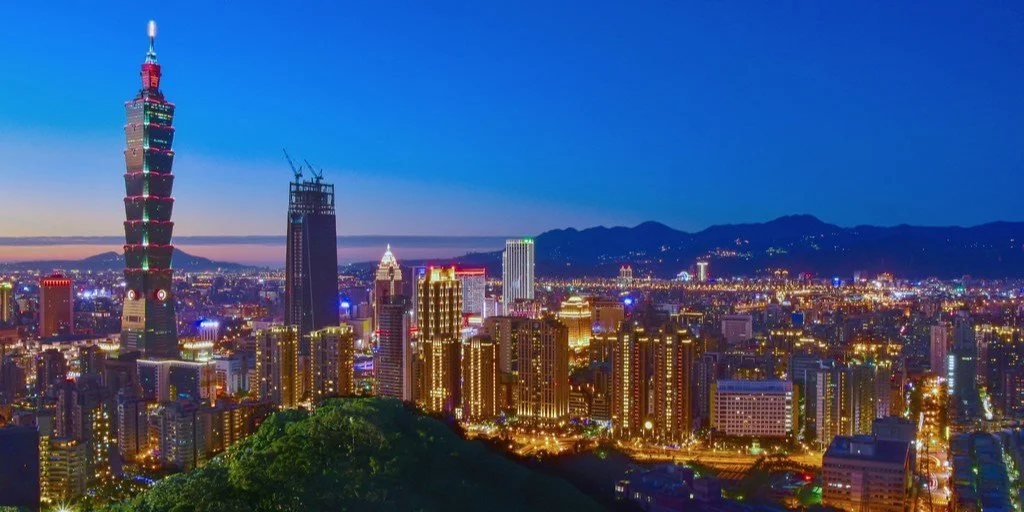The Last Years of the White Terror
"taipei cover" by inside southeast asia is marked with Public Domain Mark 1.0.
In this edition of the Members Blog, Institute member Daniel Nardini reflects on his time living in Taiwan during the height of Nationalist Party rule.
Imagine a country where the court system has no independence. All judges must follow the party line and the laws as set by the party.
Imagine a society where the legislature is made up of officials belonging to one party. All of the legislators are not only not elected but have been frozen into their positions for years because of emergency laws.
Imagine that the newspapers are completely censored and only government-approved information was allowed. Even if the newspaper organizations were "privately owned," they still had to follow the party line.
Imagine living in a society where the government decided who was the "superior race" and all others were inferior or worse the "enemy." Imagine where an honest mistake might be determined by the government as an act of political dissent.
This was the country I lived in for two long and dark years. This was Taiwan in the last years of the White Terror.
The White Terror began on May 19, 1949, with a change in Article 100 of the ROC (Republic of China) Constitution which allowed the government special emergency powers to arrest, imprison and execute anyone suspected of being a threat to the regime. It also allowed for one-party rule under the Nationalist Party of China and gave government complete control over the news media. Worse, the government used all the levers of power to terrorize and murder people at will.
This is the country I came to in June of 1990. The White Terror, which had already been going on for 41 years, may have been somewhat diminished with the end of martial law in 1987 and the establishment of the opposition Democratic Progressive Party, but the ruling Nationalist Party of China still held control of everything — the government, the armed forces, the police, and the prison system. They could and did still throw people in prison for their political beliefs.
At the time, all I wanted was to be a teacher. I wanted to start a profession and experience life in another country. What I got in the bargain was immersion in a dark period of Taiwan's history.
I saw dozens of innocent people taken away by the military police at train stations as people were boarding. The military police did not need arrest warrants, they did not need probable cause, nor did they read anyone their rights as people had none. They just grabbed people by the arms and led them away.
Every time I saw this I just wanted to run away, head back to my home, lock the door and cry. The local police were equipped with M-16 assault rifles whenever they went on patrol. This was crazy as no one in Taiwan was allowed to have firearms at all. The only way people could fight back was through sheer numbers and peaceful protest, which was occurring with increasing regularity. People were getting tired of having no say in their governance, and they wanted an end to the White Terror. They had endured it for too long.
Although I tried to stay away from protests and demonstrations, they were becoming too widespread to ignore. My fear was the whole thing turning ugly. The government could go in for another round of severe repression, or worse, civil war could break out.
How it all ended was surprising. The government made a radio announcement on May 15, 1992: Article 100 of the ROC Constitution would be amended, and the rights and liberties of the people would be restored. In 1949, a radio announcement had begun the White Terror; now, a radio announcement in 1992 had ended it.
As the months and years passed, the society that had been created by the White Terror was gradually dismantled as a civil society with due process, rights, freedom of movement and democratic guarantees was slowly emerging. The Taiwan of the dark days of the White terror that I knew is a thing of the past. Now Taiwan is an affluent country with freedom of speech, freedom of the press, the right to travel in and out of the country, and most importantly, the rule of law and due process.
In my day, those Taiwanese who dared to speak out and protest had to say goodbye to their families in case they did not return. As bad as things may be in the United States today, we still have freedom of speech, freedom of the press, and most important the right to vote and make out voices heard through the ballot box.
When I was in Taiwan during the White Terror, these things did not really exist. If the Taiwanese could fight for even the basics of freedom, we can fight to keep ours.
Daniel Nardini spent 22 years as a newspaper correspondent for Lawndale News and The Fulton Journal. He has published several books, including his eyewitness account of the Tiananmen Square Massacre, The Day China Cried. He is listed as an Illinois author in the Illinois Center for the Book.
The Modern Whig Institute is a 501(c)(3) civic research and education foundation dedicated to the fundamental American principles of representative government, ordered liberty, capitalism, due process and the rule of law.
Opinions expressed here are those of the author and do not necessarily reflect the views of the Institute or its members.

